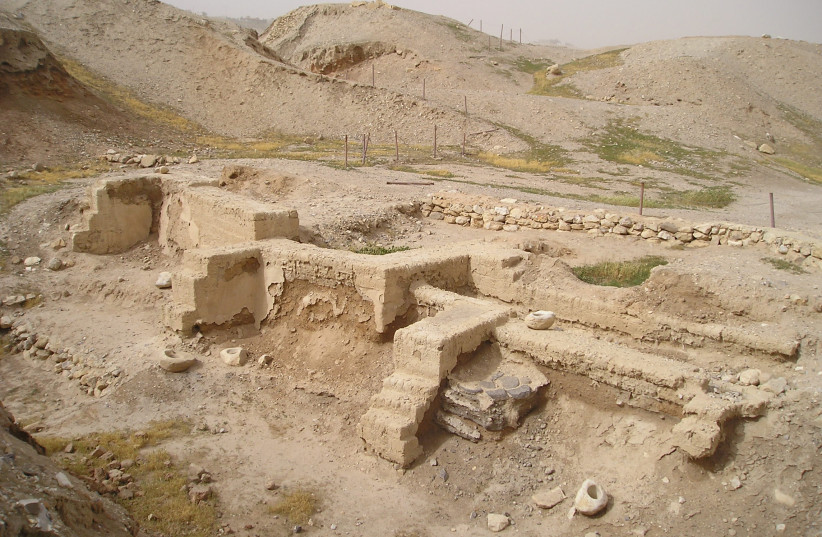An Israeli delegation on Sunday joined representatives from some 140 nations for UNESCO’s World Heritage Committee meeting in Saudi Arabia, marking the first time that a government delegation from the Jewish state took part in a global forum in the Gulf nation.
The visit comes amid a push by Washington for a security agreement with Saudi Arabia that would include a normalization deal between Riyadh and Israel.
Technically, the visit is not connected to the normalization efforts. Saudi Arabia signed an agreement with the United Nations Educational, Scientific, and Cultural Organization that it would allow party signatories to the World Heritage Convention to attend the meeting, which takes place September 10-25.
But Israel’s presence at the event is seen as a sign of warming ties with Saudi Arabia in advance of a normalization deal.
During the meeting, the UNESCO committee is slated to include 53 natural and cultural sites on its World Heritage list.

The debate over Jericho and UNESCO
Among them is the archaeological site Tell es-Sultan, located in the West Bank Palestinian city of Jericho. UNESCO plans to inscribe that site to the state of Palestine, which it has recognized as a member state of its organization since 2011.
The site, according to UNESCO, “offers remarkable insights into a crucial period in human history: the transition to a sedentary lifestyle between the ninth and eighth millennia B.C.”
The site predates the biblical story of Joshua, in which the Jews, upon entering the Land of Israel, caused the wall of ancient Jericho to collapse.
Israel, which has typically opposed all inscriptions by the World Heritage Committee to the state of Palestine, has been silent about the pending decision to place this one on the global list.
The World Heritage Committee also plans to inscribe to Germany the Jewish-Medieval Heritage of Erfurt, where the oldest and largest European medieval synagogue is located.
Foreign Minister Eli Cohen (Likud) and Education Minister Yoav Kisch (Likud) had tentatively asked to attend the World Heritage Committee but then rescinded their request.
The Israeli delegation arrived Sunday in Saudi Arabia, just one day after US President Joe Biden unveiled a plan for an India-Middle East-Europe Economic Corridor, dubbed IMEC.
The plan would link India with Europe through rail, gas, and fiber-optics lines that would run through Israel and Saudi Arabia.
The move was lauded by Prime Minister Benjamin Netanyahu.
Israel is set to become a global transportation hub now that is slated to be a critical junction for an energy corridor linking Europe to India, via Israel, Jordan, Saudi Arabia, and the United Arab Emirates, he said Sunday at the weekly cabinet meeting.
“We have already turned Israel into a global hub in cyber, water, and gas,” Netanyahu said. “Now we will do the same in transportation, energy, and global communications.”
“This vision – promoted by President Biden together with European countries and the United Arab Emirates, Saudi Arabia, and other countries – of an infrastructure corridor of railways, maritime connection, optical fibers, and energy lines, including gas and hydrogen... will pass from India through the Arabian Peninsula, through the State of Israel to Europe. It’s a huge change,” he said.
“The Land of Israel has always been a crossing point for empires that ran over us as part of their conquest campaigns,” Netanyahu said. “Now the State of Israel is becoming... a central junction in the world economy – a bridge of peace that changes our face.”
Maariv contributed to this report
